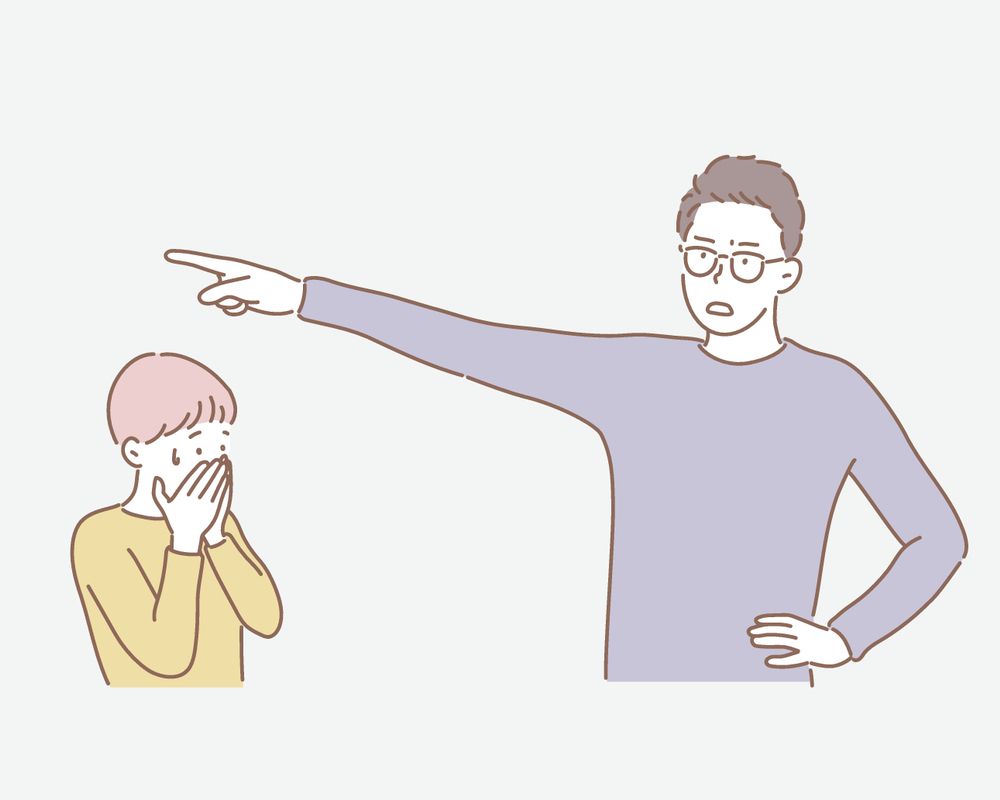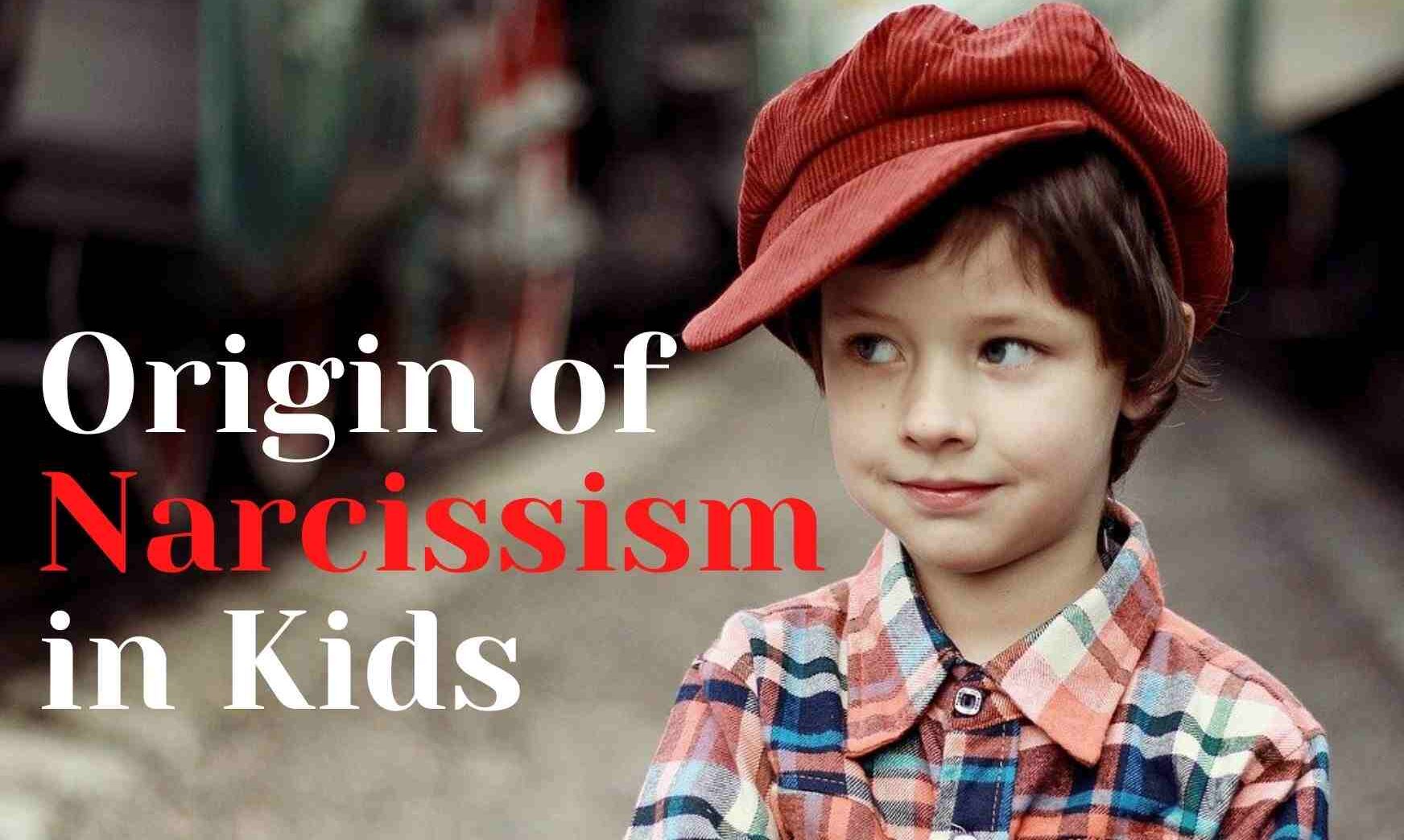People diagnosed with narcissism or who show narcissistic traits have malevolent behaviors that harm others and are self-destructive too. Witnessing kids acquire such personalities can be hurtful. Find out the different factors that originate the narcissistic behaviors in innocent kids and adolescents. So, you can avoid consequences before it’s too late.
Narcissistic personality disorder (NPD) or the narcissistic traits in a person does not pop out suddenly out of nowhere. Instead, these dark triad personality traits of a narcissist are the impact of external factors that are experienced in his/her childhood.
Fortunately, psychologists suggest that narcissism can only be diagnosed in adolescents above the age of 18. This determines that the narcissistic personality slowly builds up into children and fruits as a mental illness at age of 18. So, a proper regulation in personality development must be provided to a child to evade narcissistic traits in the future.
Kids and adolescents inherit habits and personalities from society more than older people. Their mind is much focused and curious about learning something. With a constantly developing brain, children could learn things effortlessly at that age. That is why the young age sets a base for developing a personality for the child’s future.
Give a Read: How to introduce Personality Development to Kids?
Sources through narcissism steps into childhood
Narcissism includes the traits of grandiose exhibitionism, a sense of entitlement, self-importance, and high self-esteem in a person. Children with narcissistic personalities look to be selfish and competitive fellows in others’ view. These traits indeed provide abilities attached to the traits that help them to perform well in academics. So, society does appreciate such traits in kids initially without knowing narcissism.
When such personalities develop, a narcissistic individual will seek exploitation of others, entitlement, pride, and attention. He/she values any extrinsic assets other than intrinsic things like relationships and personal growth. They do not value the emotions of others and hurt others in seek of attention and control. This conniving behavior of narcissists results in self-destroying when people stop validating them.
Any person would not want a kid to get engulfed in narcissism, and that is why they should be aware of what originates these characteristics in them and avoid them sooner.
- Wrong Parenting
- Childhood Shame
- Education System
- Lack of Personality Development
- Romantic Relationships
- Social Media
are the major factors that influence the narcissistic personality in kids, teens, or adolescents. Regulating and modulating these aspects in the right way can prevent a child from falling into narcissism.
1. Wrong Parenting
Research shows that parents who are authoritative and happy develop children with optimistic and kind behavior, whereas permissive parenting leads to developing negative and malicious behavior in kids. This shows how parenting impacts the character of the kids.
A good way of parenting influences good morals, habits, and empathy in kids that helps the kid to become virtuous. Contrarily, bad parenting can cause kids to grow stressed, anxious, insecure, and other malevolent behaviors. Overvaluation, devaluation, abandonment, and narcissistic parents are the 4 main aspects of parenting styles that can develop narcissism in kids
Overvaluation
Idealization or overvaluation of a kid is that the parents think that their kids are special, precious, and deserve more attention. They think that their kids are far better than other kids and validate them often. Such parents do ignore or manipulate the flaws of the kids and tend to appreciate any behavior the kid possesses.
For instance, if a kid loses a running race, a normal parent would react like “It’s okay, the opponent was good, you can win next time in practice”. But the overvaluing parents try to maneuver the flaws of the kid by saying “You were the best, the opponent got lucky or might have cheated”.
This may look like a parent being affectionate and kind whereas it indeed creates a mindset of being special and superior in kids. In such a way the self-esteem and self-importance in kids peaks and that is the first stage to fall into narcissism.
Devaluation
If parents overvalue their kids, the expectation of them increases simultaneously. Such parents praise and admire their kids when they achieve something extrinsic from which they can be proud. They see their kids as a source of prestige in society and if that fails to happen, devaluation begins.

The devaluation of kids is mostly verbal abuse, from which they hurt the child for not satisfying their expectations. They compare the kids with others, shame, and criticize repeatedly, makes the kid insecure and starve for validation. The devaluation practice mostly brings up covert narcissism in kids.
Abandonment
Giving kids the silent treatment or abandoning them will increase the longevity of affection, attachment as well as anger issues. Without any guidance from wise personas, a kid is more vulnerable to malicious acts in society. Such adolescents tend to become malignant narcissists and fall into addictive drugs and alcohol.
Give a Read: What are the Types of Narcissism?
Narcissistic Parents
When a kid grows under the dark shadow of narcissistic parents, he/she is going to experience every possible narcissistic trait and learn survival tactics through them. The chance of sinking into narcissism gets increased every day due to the constant exposure to narcissistic behaviors.
The kids might subconsciously believe that the lifestyle of their parents is what brings happiness and success. Following the same vicious path, the child slowly fell into the dark triad personality.
2. Childhood Shame
You might come across narcissists who brag about their childhood traumas. Whether the trauma is from the abuse of parents, teachers, friends, or society; narcissists use this trauma as an excuse for justifying the actions of their personality traits. However, it was not the trauma that made them possess this narcissistic personality, but the shame. In the act of hiding the shame, they perceive them as trauma to validate their actions.
The shame that a child endured made him/her feel insecure, unworthy, and downgraded. Also, that gives a sense of narcissistic injury and the child has only options to overcome the shame or be dumped into the basic survival instinct of narcissism. Kids who choose not to overcome fall into the narcissistic trap and start seeking constant validation from others to hide their shame. Such personalities were categorized under covert narcissism.
Have you ever experienced narcissistic abuse or currently experiencing one? Are you struggling to vent about that to anyone? Remember that venting to somebody who listens to you is the first step to healing. So, register here and vent to a listener who understands you.
3. Education System
Schooling plays a vital role in children and teenagers distinguishing their personalities. Kids spend most of their time in both school and home. So, regulating the personality in a good aspect is important in educating and parenting. Education nowadays is not very productive but expects only academic performance to determine the quality of a child.
The grades are given higher priority than the kid’s personal growth. To affirm this statement, studies show that students agree that “their parents were prouder and happier seeing kids’ academic performance than good personalities”.

Students also accept that they precede grades over the character, as it makes teachers and parents happier. Grades play on a student’s life by bringing fear of punishment and shame, or the desire to outperform their comrades. Also, it forces the students to compete with each other without inheriting the actual intent of education.
When the parents idealize the kids for their academic performance and neglect other aspects, children naturally believe that personal growth is not worthy. Children feel ashamed when they cannot meet the expectation and strive to be more perfect and flawless. The sense of “everyone is not perfect” had to be developed in parents to avoid misdirecting the child.
On the other hand, teachers praising the top rankers and devaluing the low rankers give both entitlement and unworthiness, respectively. Despite providing proper feedback to the low-performing kids, they compare and devalue them.
Give a Read: This is why narcissistic students are academically successful
4. Lack of Personality Development
Whether school, college, or home; a proper personality development is a much-required thing. Engaging with the kids interactively and hearing their emotions relieves the stress inside them. Literally, every kid strives for attention, however, regulating this through personality development helps in getting satisfied with what they have.
Focusing on the kids’ personality development by teaching them valuable morals and kindness, the kid becomes virtuous with empathy, optimism, teamwork, and other good qualities. Read how to introduce personality development to the kids.
5. Romantic Relationships
Adolescents or teenagers get into romantic relationships when they attain 16. It is a hormonal urge that comes with puberty to have relationships. Kids who do not know self-worth and self-love please their partners for attachments. This brings the grandiose sense and self-pride within the partner and often chooses to reject the relationship.
As an outcome, the kid may suffer rejection and attain narcissistic injury, which leads to starving for attention. Such kids tend to seek multiple relationships and manipulate partners consequently to get perennial attention. And that is why narcissistic relationships do not prolong much, and the narcissistic person will cheat seeking other partners.
6. Social Media
Influencers and commercials misdirect teenagers by portraying extrinsic happiness as a perfect life. Whether it is intentional or not, the fake perfection that social media impacts on teenagers makes them lack self-love and insecure about their physical appearance and economic position.
With the increase in desire for extrinsic assets, teenagers lose their intrinsic characters. Possessing the appearance and fake perfection triggers them to show off to validate their effort for extrinsic happiness.
To conclude
People who know about or experience narcissistic abuse would never want any kid to be engulfed in narcissism. It takes out empathy, kindness, morals, and every good aspect of your personality. The infinite hollow soul of a narcissist that desires everything and does not get fulfilled by whatever means. To avoid these consequences, solid personality development and care must be provided to a child.
Since narcissism is a vastly growing phenomenon in this modern world, a good awareness must be spread among the people to save the children of the future.
FAQs
Q1. Can we prevent a child from getting into narcissism?
A1. Fortunately, psychologists suggest that narcissism can only be diagnosed in adolescents above the age of 18. This determines that the narcissistic personality slowly builds up into children and fruits as a mental illness at age of 18. So, a proper regulation in personality development must be provided to a child to evade narcissistic traits in the future.
Q2. What are the major factors that influence narcissism in kids?
- Wrong Parenting
- Childhood Shame
- Education System
- Lack of Personality Development
- Romantic Relationships
- Social Media
are the major factors that influence the narcissistic personality in kids, teens, or adolescents. Regulating and modulating these aspects in the right way can prevent a child from falling into narcissism.
Q3. What parenting causes narcissism in children?
A1. Overvaluation, devaluation, abandonment, and narcissistic parents are the 4 main aspects of parenting styles that can develop narcissism in kids.
Q4. Why do parents devalue their kids?
A1. Parents devalue when the kids fail to achieve something that brings extrinsic happiness to them. Overvaluing and overpraising the children results in the expectation of achievement in return. Admiring the kids when achieving and devaluing when failing, forces the kids to become flawless and perfect.











